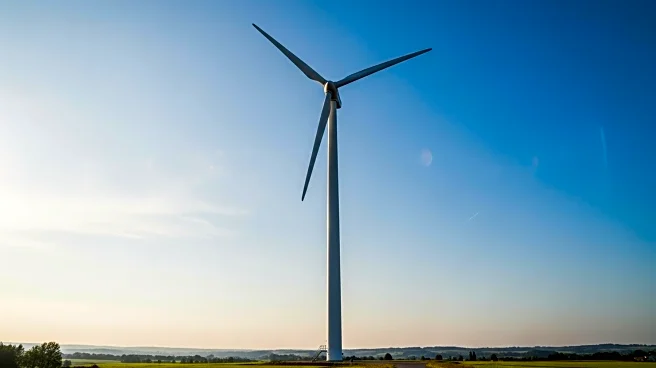What is the story about?
What's Happening?
The European Commission (EC) has introduced a new state aid framework, CISAF, as part of its Clean Industrial Deal. This framework aims to support strategic industries aligned with the EC's goals, including renewable energy, decarbonization, and cleantech manufacturing. The initiative seeks to accelerate Europe's green transition and strengthen industrial resilience by simplifying approval processes for state aid schemes. The EC's agenda includes support for renewable energy, low-carbon fuels, industrial decarbonization, and clean tech development. The framework replaces the previous Temporary Crisis and Transition Framework and builds on the Climate, Energy and Environmental Aid Guidelines. It aims to provide quicker approval for investments in clean energy, decarbonization technologies, and manufacturing in clean tech.
Why It's Important?
The adoption of CISAF is significant as it positions the EU to lead the global energy transition, enhancing its competitiveness in the cleantech sector. By facilitating state aid for strategic industries, the EC aims to bolster Europe's energy security and meet ambitious green targets. This move is crucial in the context of increasing geopolitical tensions and competition from major producers like China and the US. The framework encourages public and private investments across the supply chain, potentially driving economic growth and innovation in the EU. It also supports the development of large-scale, cross-border projects, fostering collaboration among member states and industries.
What's Next?
Companies are encouraged to explore investment opportunities in sectors aligned with the EC's goals and assess eligibility under new state aid schemes. The EC plans to further simplify and update the state aid General Block Exemption Regulation to reduce red tape and facilitate necessary support for the industry. The EC is also working on new Projects of Common European Interest to support industrial decarbonization and cleantech manufacturing. These initiatives aim to pool investment and resources for key projects, including microelectronics, hydrogen, batteries, and cloud infrastructure.
Beyond the Headlines
The EC's focus on clean industrial development highlights the ethical and environmental dimensions of its policy. By prioritizing renewable energy and decarbonization, the EC is addressing climate change and promoting sustainable practices. The framework also reflects a shift towards strategic autonomy in critical technologies, reducing dependency on external suppliers and enhancing Europe's resilience.


















